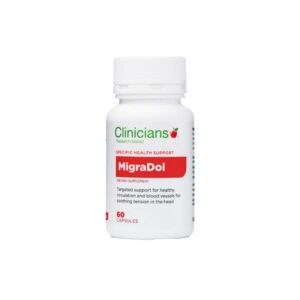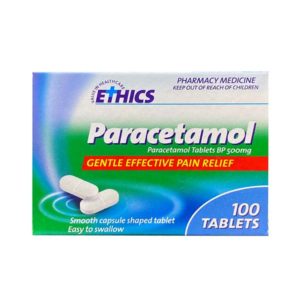Over 500,000 Kiwis* have a shared understanding of the debilitating effect that migraine headaches have on daily life.
Migraines are more than just a ‘really bad headache’, their symptoms are severe and can affect work, relationships, and overall well-being.
Let’s cover some of the key aspects of migraine headaches, including how to manage migraines and how to reduce the chance of you having an attack through self-care.

The primary symptom of a migraine attack is intense, crippling headaches usually on one side of the head. Migraine attacks may also include the additional symptoms of:
Migraine headaches often run in families and are more commonly diagnosed in women, than men. It can affect people of all ages. Migraine attacks can be caused by a number of triggers. Understanding what triggers your migraine attacks is an important part of managing them. Some common triggers include:
stress, anxiety, or depression: high levels of emotional stress is one of the most reported triggers,
dietary factors: certain foods and beverages can be a trigger. Excess caffeine or alcohol are common triggers,
sleep irregularity: both insufficient and excess sleep can trigger migraines,
hormonal changes in women: during menstruation, pregnancy, or menopause,
strong sensory stimuli: bright or flickering lights, strong smells, loud noises, and drastic changes in environmental conditions can be triggers.
If you are experiencing a migraine attack, there are some simple strategies to provide relief from your symptoms.
While there is no cure for migraine attacks, it’s possible to reduce the frequency and severity of migraine attacks by learning what your triggers are and changing your lifestyle to avoid or minimise them.
Keeping a diary of when you have migraine attacks can be a useful tool to help you work out what may be triggering them. The following lifestyle changes should be considered to help address some of the most common triggers:
Migraine headaches can be a disruptive and distressing experience. There is no cure, and they are likely to continue to occur with a varying level of frequency. It’s important for you or your loved ones to learn what is triggering the attacks and deciding to manage the condition.
By making the necessary lifestyle changes, and adopting preventative measures, migraine sufferers can significantly improve their quality of life. Speaking with a healthcare professional is recommended to discuss your possible triggers, and how to manage them.




